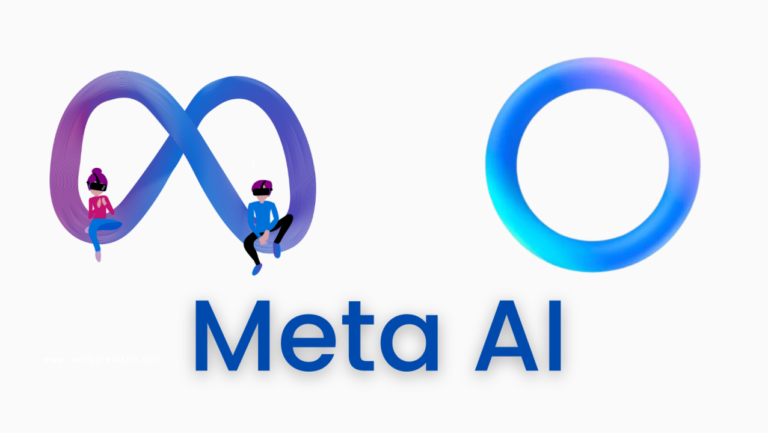Meta is pushing the boundaries of artificial intelligence (AI) with new video editing tools integrated into its Ads Manager, allowing advertisers to create and manipulate video content more efficiently. As Meta continues its AI evolution, these tools are set to redefine how video ads are delivered to Facebook and Instagram users globally.

The introduction of these tools comes as part of a broader AI push by Meta, designed to streamline the ad creation process and enhance advertisers’ ability to target their audiences more effectively. The implications for users, however, are already raising concerns about the ethical use of AI in advertising.
AI Editing Tools Focused on Video Content Creation
The two headline features Meta has unveiled are Video Expansion and Image Animation. Both tools are designed to make creating video ads easier for advertisers by using AI to enhance and modify content automatically.
- Video Expansion: This feature works by generating “unseen pixels” to expand a video’s aspect ratio, essentially enabling advertisers to adapt the same video for multiple formats without having to shoot new footage. Whether it’s resizing for a mobile screen or repurposing content for various social media platforms like Instagram Reels, this tool cuts down on the need for extensive video editing.
- Image Animation: This feature lets advertisers turn static images into dynamic video content, allowing still photos to become animated for short-form video services like Reels. The animation function aims to make video ads more engaging by adding motion to otherwise static ads.
These tools mark an evolution of Meta’s existing AI-driven tools, such as Background Generation, Image Expansion, and Text Variations, which have primarily focused on images. With users reportedly spending over 60% of their time interacting with video content on social platforms, Meta’s shift towards video-oriented AI tools makes sense.
The Impact on Users: More Personalized Ads
For users, the rollout of these tools likely means an increase in the volume of video ads in their Facebook and Instagram feeds. Because AI can create or expand video content at scale, advertisers will have fewer barriers to producing more ads in various formats. This, in turn, could lead to a more personalized—yet more saturated—ad experience. As AI becomes more adept at creating hyper-targeted ads, users might notice that the content they’re shown aligns even more closely with their browsing habits.
However, the influx of AI-generated content raises important questions about authenticity. With AI making it easier to generate slick, professional-looking ads from static images or low-quality video, users could find it harder to distinguish between genuine, handcrafted content and material created by machines.
The Ethical Quandary: AI’s Growing Role in Advertising
While the technological advancements behind these tools are impressive, the ethical implications cannot be ignored. The use of AI in advertising is not new, but the depth of AI involvement in content creation presents fresh concerns.
Meta’s announcement mirrors the efforts of other tech giants like Amazon and TikTok, which have also been testing AI tools to streamline ad creation and delivery. But as AI continues to blur the lines between authentic and generated content, the potential for misuse looms large.
One key concern revolves around the issue of consumer trust. While AI can enhance creativity and reduce the manual labor involved in ad creation, it also introduces risks related to manipulation and misinformation. Meta and other platforms are already under scrutiny for the ethical use of user data in advertising, and adding AI into the mix could exacerbate these concerns.
Moreover, generative AI—the technology behind Meta’s new tools—has the potential to not only simplify ad creation but also make it easier for brands to push ads that might deceive consumers. This raises the need for regulatory oversight to ensure that AI-generated ads adhere to ethical standards and do not exploit users.
Balancing Creativity and Ethical Responsibility
As generative AI continues to dominate advertising, one of the biggest challenges will be finding a balance between innovation and ethical responsibility. Companies like Meta are championing AI’s potential to eliminate the repetitive tasks involved in content creation, which could help advertisers focus more on strategic, high-level creativity. However, there’s also a risk that over-reliance on AI could lead to a homogenization of content, where ads become increasingly similar and less creative over time.
Furthermore, the ethics of AI in advertising tie back to the broader question of transparency. Should users be informed when an ad is AI-generated? Does AI-generated content pose a greater risk of perpetuating harmful stereotypes or biases?
Meta’s new tools are poised to make advertising more efficient, but they also underscore the need for the advertising industry to stay vigilant about the ethical use of AI. As AI tools become more capable of generating realistic and persuasive content, advertisers must take care not to misuse these technologies.
Looking Ahead: The Future of AI in Advertising
As Meta prepares for a global rollout of these tools by next year, it is clear that AI is poised to play an even larger role in how users interact with ads on social platforms. While AI-driven innovation could lead to more engaging, tailored ads, it also heightens concerns around user autonomy and the balance of power between advertisers and consumers.
The rise of AI in advertising highlights the need for a broader conversation about AI regulations. As generative AI becomes more embedded in the fabric of online content, the advertising industry will need to adopt more rigorous standards to ensure that AI is used responsibly.
In conclusion, Meta’s new AI video editing tools are a game-changer for advertisers, enabling them to produce more content with less effort. However, with great power comes great responsibility. As AI tools continue to evolve, advertisers, regulators, and users alike will need to navigate the ethical implications of AI in advertising to ensure a balance between creativity, authenticity, and consumer trust.



